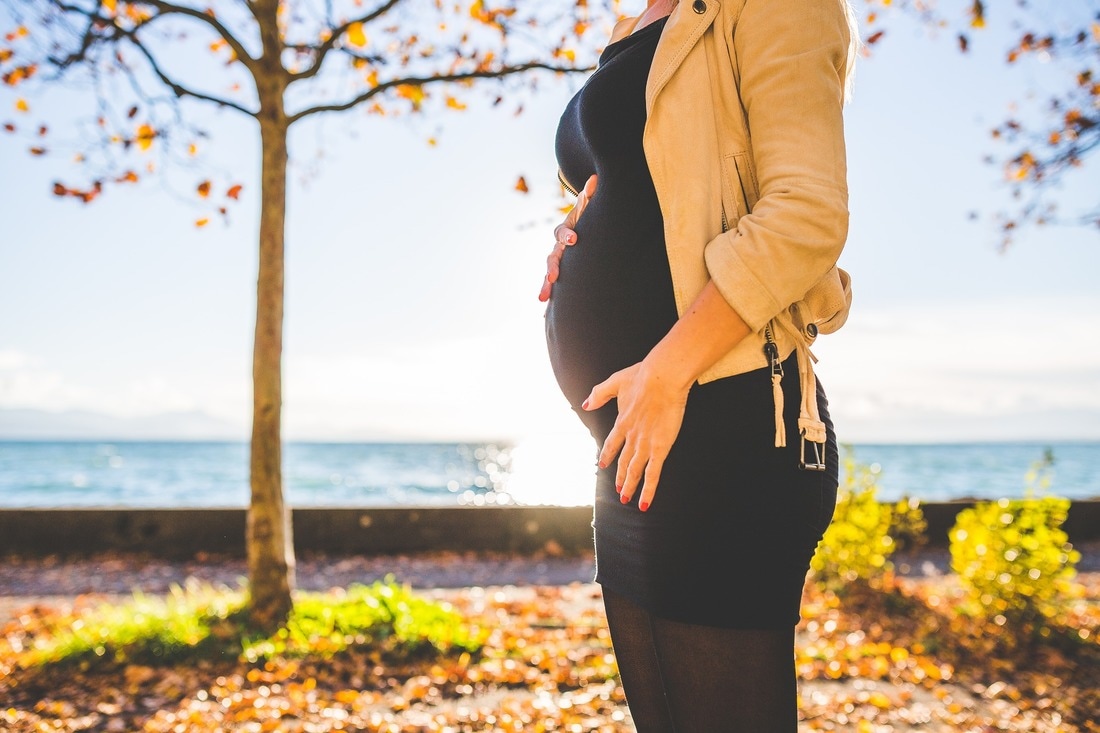|
Last week we looked at the power of probiotics and the fact that we get our good bacteria from our mother when we are born. As the baby travels down the vaginal canal the baby is covered in secretions which contain their mother's flora. This is then swallowed by the baby and that bacteria colonizes their gut and forms the beginning of their immune system. This is why "seeding" (taking gauze soaked in this fluid and wiping it on the babies face) is becoming increasingly discussed as a way of getting that first colony into the baby after a C-section.
Think you don't need to take one? Let's look at some of the things that compromise gut flora. - Birth Control (Most women are on this prior to falling pregnant.) -Antibiotics (many women suffer with UTI's during pregnancy). -Antacids (how many women do you know who slept with rennies by the bed and spent the last trimester knocking back the gaviscon?) -Pesticides (Unless we eat an entirely organic diet, most of us are exposed to these through the diet). -Household Cleaning products (One word....Nesting!!) -The list goes on! Still not convinced? Well let's look at the benefits of taking probiotics for you and your baby both in vitro and beyond. A 2010 Scandinavian study showed that probiotics significantly reduced the risk of Gestational Diabetes and that coupled with proper nutritional support reduced the risk of foetal overgrowth associated with it. This of course has the knock on effect of reducing the need for medical intervention during delivery. A further study has shown that in addition to reducing hypertension (high blood pressure) and inflammation, intake of probiotics also significantly reduces the risk of pre-eclampsia and spontaneous preterm delivery. Those who took probiotics daily had the lowest risk factors when compared with those who consumed them only weekly or monthly. Taking probiotics prior to giving birth and then giving them to the infant for the following 6 months has been shown to reduce the incidence of eczema. The Swansea Baby Trial supported these results. Babies given Lab4b (the probiotic used in the Proven range) were 57% less likely to develop allergic eczema than those receiving the dummy product. It also showed that children whose mothers had probiotics in the last trimester along with taking them for the following 6 months were 44% less likely to develop allergic reaction to the common allergens including pollen, cow’s milk, egg, and house dust mite. The Swansea study also concluded that probiotics are safe and that taking them had no adverse effects to mum or baby. A Study from MIT has also showed that supplementation with probiotics increases the production of love hormone oxytocin. This in turn leads to increased immunity with the infant exhibiting robust skin and mucosae, rapid wound healing and resistance to infection. If you would like more information or to find out which probiotic is the right one for you pop in and see us. Nourishing Insights, 44 St Andrew Street, Aberdeen, AB25 1JA. References: https://www.umcg.nl/EN/corporate/News/Paginas/Antacid-use-dramatically-reduces-healthy-gut-microbial-flora.aspx http://lab4probiotics.co.uk/the-swansea-safety-in-newborns-study/index.html http://lab4probiotics.co.uk/the-swansea-baby-trial/index.html R.Luoto et al. (2010) Impact of maternal probiotic-supplemented dietary counselling on pregnancy outcome and prenatal and postnatal growth: a double-blind, placebo-controlled study. British Journal of Nutrition. 103 p. 1792-1799. A. Brantsaeter et al. (2011) Intake of Probiotic Food and Risk of Preeclampsia in Primiparous Women: The Norwegian Mother and Child Cohort Study. American Journal of Epidemiology. 174 (7) p.807-815 K. Kukkonen et al. (2007) Probiotics and prebiotic galacto-oligosaccharides in the prevention of allergic diseases: a randomized, double-blind, placebo-controlled trial. Journal of Allergy and Clinical Immunology. 119(1) 192-198. S.E. Erdman and T.Poutahidis. (2014) Probiotic ‘glow of health’: it’s more than skin deep. Beneficial Microbes. 5(2) p. 109-119. M.Murray &J.Pizzorno (2012) The Encyclopedia of Natural Medicine. Atria. New York.
0 Comments
Leave a Reply. |
Amazon Associates DisclosureNourishing Insights is a participant in the Amazon EU Associates Programme, an affiliate advertising programme designed to provide a means for sites to earn advertising fees by advertising and linking to Amazon.co.uk. Archives
December 2023
|
WHAT OUR CLIENTS ARE SAYING“I did Nutritional Therapy with Beverley and it was life changing. I highly recommend it!” Allison Blakely (Glasgow)
|
Contact Us |



